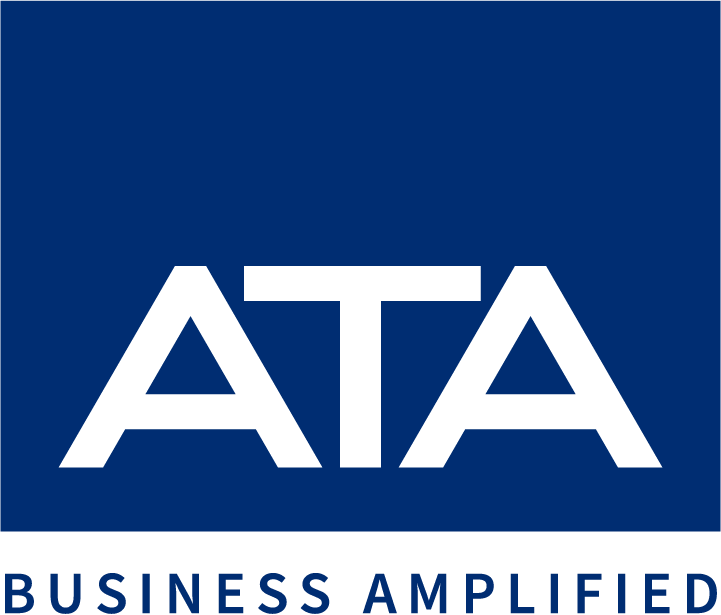
Author: Alexis Long

Categories
The Ups and Downs

New federal budget figures show mixed results.
For the first 10 months of fiscal year 2019, the U.S. government recorded an estimated budget deficit of $867 billion, according to a Congressional Budget Office (CBO) report. This was $184 billion more than the deficit in the same period in FY2018.
Also compared to the same 2018 period, revenues rose by $92 billion and outlays were $276 billion higher. Individual income and payroll taxes were up $78 billion (3%) and withholding grew by $51 billion (3%). That “largely reflects increases in wages and salaries that were partly offset by a decline in the share of income withheld for taxes,” the CBO said.
Here’s the report: https://bit.ly/2OWBrH2

Watch the video here.
Let’s talk about Roth versus Traditional. IRAs or 401ks. An IRA is an individual retirement account not associated with your employer. A 401k is a retirement account maintained by your employer.
A question we get all the time is: should I invest in a Tradition or Roth retirement account? A primary difference between a Roth and Traditional retirement account is the timing of the tax benefit. With a Roth, you receive the tax benefit at the end when you retire. With a Traditional, you receive the tax benefit at the beginning when you make the contribution.
There are numerous resources on the internet to give you all of the details you could ever want on this topic, including the IRS website. In my forty years of experience, my opinion is generally Roth retirement accounts are best suited for young people. Because they have a long working life before they retire and that gives their investments time to increase substantially and that increase will not be taxable to them when they draw it out at retirement.
Traditional IRAs and 401ks are best suited to those who are in a higher tax bracket. They will save significant tax dollars immediately and will likely be in a lower tax bracket when they retire because their income will be reduced. This usually describes mature individuals. They are in their later years of working and usually have higher incomes. Therefore, the tax savings currently are greater and the time for investments to increase in value is shorter.
When you decide to put money in a retirement account, that is for retirement. That is not college savings, savings for a car, etc. The penalty for early withdrawal is 10% plus you pay income tax on the amount you withdraw.. As an example for a traditional IRA or 401k: if you withdraw $10,000 and you are in the 22% tax bracket, you will pay $3,200 of the $10,000 to the government. Not a good deal.
With Traditional IRAs, you must be at least 59 and a half to avoid any early distribution penalties. However, once you reach the age of 70 and a half, you must start taking required minimum distributions. These distributions are generally 100% taxable. With a Roth IRA or 401k, there are no Required Minimum Distributions and distributions at retirement are 100% tax free.
Since no one has a crystal ball, we don’t know what tax rates will be and both plans have some great benefits. If your tax rates are higher now, use the Traditional, however, if your tax rates are expected to be higher when you retire, choose the Roth.
One suggestion is the hedge, use a Roth IRA or 401k when you are younger. When you mature and income has increased, you can always change to traditional to get the immediate tax savings. But talk to your CPA and investment advisor to get the best solution for you.
As a rule of thumb, contribute more than you think you can afford to your retirement plan. Your retirement self will thank you later.

FOR IMMEDIATE RELEASE
July 10, 2019
Alexander Thompson Arnold PLLC Announces New Female Partner
Alexander Thompson Arnold PLLC (ATA) is excited to announce that Marcie Williams has been promoted to partner. Marcie is a certified public accountant and has been with the firm for the past 12 years in the Jackson office. She is an assurance partner specializing in internal school funds, school districts, single audits, contractors and other for-profit engagements.
“This is a goal I have been working toward for some time,” said Williams. “I have always enjoyed the people I work with and the niches I have developed throughout my career. Becoming a partner in these areas of practice and continuing relationships with my coworkers and clients is not only a privilege but an honor. I look forward to pursuing this role at ATA and furthering my career doing what I enjoy.”
While employed at ATA, Williams has gained extensive experience in several divisions of ATA, including technical review, which has made her a valuable resource for the firm. Additionally, she leads regular internal training sessions and offers guidance to staff and newly acquired firms to maintain our high standards of quality control.
“Marcie has shown exceptional leadership over the past 12 years,” said managing partner, John Whybrew. “She takes initiative and is always a team player. ATA is proud to name her partner and looks forward to the continued value that she’ll bring to the firm.”
Marcie graduated from Arkansas State University in December 2006 with an undergraduate degree in accounting. She has been married to her husband Michael for the past twelve years and together they have two active boys, nine-year-old Easton and seven-year-old Landon. Marcie is a Jackson native, attends Englewood Baptist Church, and is a graduate of Leadership Jackson. Currently, Marcie serves as President of the TSCPA West Tennessee Chapter. She is also on the Jackson State Community College Foundation Board of Trustees and the Leadership University Board.
ATA has 16 office locations in Tennessee, Indiana, Kentucky and Mississippi. ATA is an IPA Top 200 regional accounting firm that provides a wide array of accounting, auditing, tax and consulting services for clients ranging from small family-owned businesses to publicly traded companies, and international corporations. ATA is also an alliance member of BDO USA LLP, which allows it to utilize the resources and expertise for its clients of a top five global accounting firm.
XXX
For more information, contact:
Alexis Long, Marketing Director
731-427-8571
along@atacpa.net

ATA received an honorable mention for outstanding risk management by our healthcare provider, Berkley Accident and Health.
ATA has taken a holistic approach to health and wellness by educating team members on the importance of mind, body, and spirit. Based on our organization’s trend data that showed an increase in claims and Rx utilization associated with anxiety/depression and heart health, ATA implemented a Tax Season Wellness Challenge that focused on behaviors and activities that encourage mindfulness, nutrition, being thankful and moving. In return, received no increase to health plan costs from the 2018 to 2019 plan year and reinvested a large portion of the savings back into the wellness initiative to offer more challenges and rewards for 2019 and kept employee health premiums unchanged for 2018-2019. The most exciting component added this year was a reinvestment in the communities ATA serves. The new wellness platform allows employees and office locations to earn points that equate to dollars that are contributed to civic and non-profit organizations at the local level.
The Risk Achievement of the Year (RAY Award) recognizes Group Captive members who have shown exceptional dedication to health risk management in the previous year. Nominees must demonstrate a strong commitment to employee health and wellness, adopt programs that help lower health risk factors, and show measurable results. Above all, winning companies seek to promote a culture of health and secure optimal outcomes for employees and their families.
Learn more about the RAY Award and its winners.

Is your business hiring this summer? If the employees come from certain “targeted groups,” you may be eligible for the Work Opportunity Tax Credit (WOTC). This includes youth whom you bring in this summer for two or three months. The maximum credit employers can claim is $2,400 to $9,600 for each eligible employee.
10 targeted groups
An employer is generally eligible for the credit only for qualified wages paid to members of 10 targeted groups:
-
Qualified members of families receiving assistance under the Temporary Assistance for Needy Families program
-
Qualified veterans
-
Designated community residents who live in Empowerment Zones or rural renewal counties
-
Qualified ex-felons
-
Vocational rehabilitation referrals
-
Qualified summer youth employees
-
Qualified members of families in the Supplemental Nutrition Assistance Program
-
Qualified Supplemental Security Income recipients
-
Long-term family assistance recipients
- Qualified individuals who have been unemployed for 27 weeks or longer
For each employee, there’s also a minimum requirement that the employee have completed at least 120 hours of service for the employer, and that employment begins before January 1, 2020. Also, the credit isn’t available for certain employees who are related to the employer or work more than 50% of the time outside of a trade or business of the employer (for example, working as a house cleaner in the employer’s home). And it generally isn’t available for employees who have previously worked for the employer.
Calculate the savings
For employees other than summer youth employees, the credit amount is calculated under the following rules. The employer can take into account up to $6,000 of first-year wages per employee ($10,000 for “long-term family assistance recipients” and/or $12,000, $14,000 or $24,000 for certain veterans). If the employee completed at least 120 hours but less than 400 hours of service for the employer, the wages taken into account are multiplied by 25%. If the employee completed 400 or more hours, all of the wages taken into account are multiplied by 40%. Therefore, the maximum credit available for the first-year wages is $2,400 ($6,000 × 40%) per employee. It is $4,000 [$10,000 × 40%] for “long-term family assistance recipients”; $4,800, $5,600 or $9,600 [$12,000, $14,000 or $24,000 × 40%] for certain veterans. In order to claim a $9,600 credit, a veteran must be certified as being entitled to compensation for a service-connected disability and be unemployed for at least six months during the one-year period ending on the hiring date. Additionally, for “long-term family assistance recipients,” there’s a 50% credit for up to $10,000 of second-year wages, resulting in a total maximum credit, over two years, of $9,000 [$10,000 × 40% plus $10,000 × 50%].
The “first year” described above is the year-long period which begins with the employee’s first day of work. The “second year” is the year that immediately follows. For summer youth employees, the rules described above apply, except that you can only take into account up to $3,000 of wages, and the wages must be paid for services performed during any 90-day period between May 1 and September 15. That means that, for summer youth employees, the maximum credit available is $1,200 ($3,000 × 40%) per employee. Summer youth employees are defined as those who are at least 16 years old, but under 18 on the hiring date or May 1 (whichever is later), and reside in an Empowerment Zone, enterprise community or renewal community.
We can help
The WOTC can offset the cost of hiring qualified new employees. There are some additional rules that, in limited circumstances, prohibit the credit or require an allocation of the credit. And you must fill out and submit paperwork to the government. Contact us for assistance or more information about your situation. © 2019

Contact: William Donnell, Founder Sodium Halogen
731.506.4535
wm@sodiumhalogen.com
May 1, 2019
FOR IMMEDIATE RELEASE
Creative agency, Sodium Halogen, has merged with CPA firm, Alexander Thompson Arnold
Sodium Halogen has merged with ATA to become the firm’s digital consulting arm. This new relationship will provide ATA’s clients with additional resources including marketing consulting, app development, and other creative services to further enhance their businesses. The combination of ATA and Sodium Halogen creates a full-stack consulting service to amplify businesses.
“Think of it as left brain meets right brain,” said Stephen Eldridge, ATA partner. “ATA’s analytical thinking is joining with Sodium Halogen’s creative mindset, which means a more diverse business strategy.”
“We’ve been very pleased with what Sodium Halogen has done for ATA,” said partner, John Whybrew. “They’ve rebuilt our brand and website, improved our marketing, and created software to increase efficiency. It seemed natural to offer the same great products to our clients.”
Sodium Halogen has worked with more than 300 businesses ranging from startups to national corporations, including Chick-Fil-A, MARS petcare, GE Capital and Vanderbilt University. Their recent merger with Nashville-based C4 solutions, added partners Barrett Gay and Quincy Jones, further expanding their expertise to include virtual reality, robotics and app development.
“We believe creating great digital products starts with the customer,” said William Donnell, founder of Sodium Halogen. “Our method focuses on solving your customers’ problems while accomplishing your business goals. We are thrilled to offer this service not only to ATA, but the communities they serve.”
Sodium Halogen’s digital experience starts with their “Designtific Method” that involves research, strategy, idea generation and design. After goals are established, Sodium Halogen will recommend which digital products are best suited for that company. Goals could include (but are limited to) saving time and money, growing revenue, closing more leads or brand awareness.
ATA clients can take advantage of this partnership immediately by contacting their local ATA office.
-###-
About ATA
ATA is the premier source of accounting and advisory services helping clients achieve their goals. ATA has twenty-six partners, sixteen offices, and over 250 staff that encompass the teams across Tennessee, Kentucky, Mississippi and Indiana. ATA has been recognized by INSIDE Public Accounting as a national top 200 accounting firm. They were also recognized by IPA 200 as the fastest-growing all growth firm. Learn more about ATA at ata.net.
About Sodium Halogen
Sodium Halogen’s multi-disciplinary team spent the last 18 years experimenting and refining their process of turning great ideas into solid strategy and great digital products. Sodium Halogen specializes in the design and development of software/application, brands, websites, interaction design (UX/UI) and virtual reality. Sodium Halogen is based out of Jackson, Tenn. and Nashville, Tenn., but serves clients around the world. Learn more about Sodium Halogen at SodiumHalogen.com.
Categories
Deductible Business Interest

Taxpayers can generally deduct business interest paid or accrued during the year, subject to limits. The U.S. Congress Joint Committee on Taxation has published a briefing, titled “Overview of Limitation on Deduction of Business Interest,” to clarify changes brought by the Tax Cuts and Jobs Act.
The briefing discusses these topics: definition of terms; carryforward rules; pass-through entities; the effect of the carryforward rule on partnerships; exceptions; and the effective date of the changes. Access it at https://bit.ly/2UjTglJ and then click “download.”

The IRS is revising the Employer Identification Number (EIN) process. Anyone filing a tax return or other documents with the IRS must provide a taxpayer ID number. One way that employers, estates, and certain others do so is with an EIN. The IRS has announced that, as of 5/13/19, to obtain a nine-digit EIN, the application must list an individual as the “responsible party” and include that person’ s Social Security number or other taxpayer ID number. The purpose is to enhance security by preventing entities from obtaining additional EINs. (IR 2019-58)
